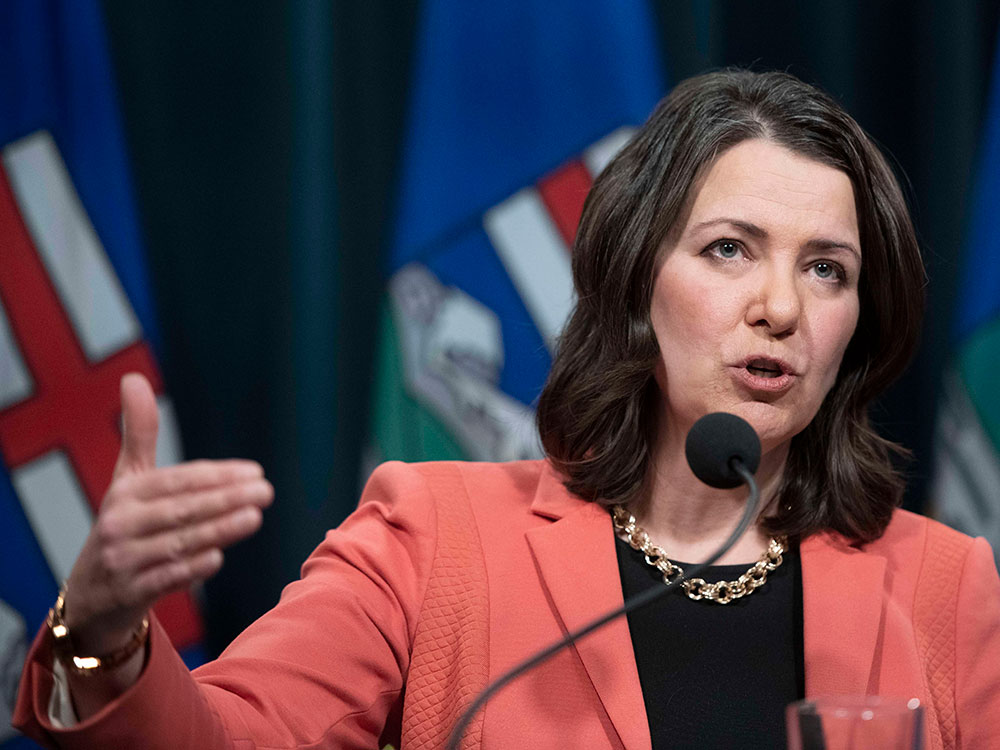Albertans are profoundly worried that inflation is eroding the real value of their wages and salaries.
In a recent poll conducted by the Counsel Public Affairs, two-thirds of working Albertans say their salary or wages have not kept up with inflation.
An even larger number — 86 per cent — are worried that inflation and the rising cost of living will result in a decline in their personal standard of living.
This anxiety has clear implications for the looming provincial election. Which party would do a better job helping Alberta get wages that keep pace with inflation?
The answer is clearly not the United Conservative Party.
In a study prepared by economist Jim Stanford and released jointly this week by the Alberta Federation of Labour and the Centre for Future Work, we show that Alberta’s record on wage growth under the UCP has been the worst among all Canadian provinces.
That’s right: despite the fact that Alberta is the wealthiest province in the country, when it comes to wage growth, we’re dead last.
Over the past four years, weekly wages in Alberta grew by an average of 2.3 per cent annually, far below the Canadian average of 3.9 per cent.
The wages earned by many other Canadians are falling behind inflation, too. But, here in Alberta, workers are falling behind faster than anywhere else. In fact, if the current trends persist, Alberta may soon lose its position as Canada’s highest-wage province to places like B.C., Ontario or Quebec.
It’s important for Alberta voters to understand that this is no accident. Instead, it’s the result of what can only be described as a deliberate wage suppression strategy implemented by the UCP over the past four years.
This strategy has four components.
First, the UCP has frozen the minimum wage — and cut it by $2 for workers under the age of 18.
While other provinces increased their minimum wage rates by an average of 26 per cent over the past four years, under the UCP Alberta’s minimum wage remained the same, even as inflation spiked.
If the Alberta minimum wage had kept up with inflation, it would be $17 today, instead of $15.
Alberta workers understand that failing to increase wages to match inflation is the same thing as a wage cut. So, essentially, the UCP has cut the wages of our province’s lowest paid workers by $2 per hour (and by $4 for teenagers).
This has put downward pressure on all wages in Alberta, especially those one or two steps above the minimum wages.
To make matters worse, the UCP has made it very clear that they have no intention of increasing the minimum wage in the foreseeable future, regardless of inflation.
The second thing the UCP did to reduce wages for Albertans was to make it harder for workers to join unions and easier for Alberta employers to bust existing unions.
Under the UCP, workers now have to go through a much longer and more complicated process to join a union.
The UCP has also refused to abolish the practice of “double-breasting,” which allows employers in the construction sector to spin off new non-union arms whenever a group of workers is successful in organizing a union.
They have also refused to stop employers from “contract flipping” — a process currently being used by Imperial Oil to replace a unionized work-camp contractor with a non-union contractor, which will pay its workers 17 per cent less.
You don’t have to be a fan of unions to understand that these kinds of attacks on workplace rights undermine worker bargaining power — and weakened worker bargaining power means lower wages for all workers, not just union members.
If it’s true that UCP policies are undermining worker bargaining power, you would expect that the share of Alberta’s economic pie going to worker wages would be shrinking — and that’s exactly what’s happening.
Stanford’s report shows that under the UCP the share of our economy going to wages has gone down dramatically, while the share going to corporate profits has increased.
The third component of the UCP’s wage suppression strategy has to do with overtime.
Early in its mandate, the UCP introduced a new mechanism that allows many non-union employers to avoid paying premium rates (time-and-a-half) for overtime hours worked by their employees.
Before the UCP changed things, employers could reduce their overtime bill by averaging the hours worked by their employees over a period of 12 weeks. Now, non-union employers can average hours over an entire year. This makes it far easier for them to simply make overtime hours disappear.
The final component of the UCP’s wage suppression strategy has to do with the hundreds of thousands of Albertans who work in the provincial public sector, including health care and education.
Right from the start, the UCP made it clear that they wanted to reduce wages for all public sector workers. They claimed that Alberta public sector workers were overpaid.
They made these claims despite the fact that average wage increases for public sector employees during Alberta’s decade-long oilsands boom from 2004 to 2014 fell far behind average wage increases for private sector workers.
As it stands right now, the majority of public sector workers (including nurses, teachers and many others) haven’t seen wage increases that keep up with inflation for more than a decade. Some of them (including many educational assistants in our schools) haven’t had any raises, at all, in eight years.
To facilitate public sector wage cuts, the UCP imposed “bargaining mandates” that actually prohibited public-sector employers (like Alberta Health Services and schools boards) from settling contracts that provided wages that kept up with inflation.
The UCP hasn’t deviated from their wage suppression strategy even as inflation spiked and it became increasingly obvious that higher wages would be needed to attract and retain employees and head off crippling labour shortages in health care and education.
As Stanford points out in his report, keeping wages low is a feature, not a bug, of the “trickle-down” economic policies implemented by the UCP. And it’s an approach that the UCP, first under Jason Kenney and continuing now under Danielle Smith, has pursued with vigour.
So, which party would be more likely to help working Albertans get wages that keep up with inflation?
As I said, the UCP’s commitment to a minimum wage freeze, union-busting laws, employer-focused overtime policies and public-sector wage cuts add up to a de facto wage suppression strategy.
So, if voters are worried about their wages, it would clearly not be in their best interest to vote UCP.
The NDP, on the other hand, has committed to raising the minimum wage and indexing it for inflation. They have also promised to get rid of the UCP’s outrageous overtime rule; and eliminate double-breasting in construction and other barriers designed to undermine the constitutional right of workers to join unions.
What about public sector wages under an NDP government? When they were in power (during the post 2014 oil-price collapse), they were hard-nosed at the bargaining table and all workers in the provincial public sector eventually negotiated contracts with three years of wage freezes.
This time around, all the NDP will promise is that, if elected, they will negotiate fairly in the current economic environment, which is characterized by much higher oil prices, much higher inflation and crippling staff shortages in health care and education.
The contrast between the two parties on wages for Alberta workers is clear.
A vote for the UCP is a vote for continued wage suppression. ![]()
Read more: Rights + Justice, Politics, Labour + Industry, Alberta
















Tyee Commenting Guidelines
Comments that violate guidelines risk being deleted, and violations may result in a temporary or permanent user ban. Maintain the spirit of good conversation to stay in the discussion and be patient with moderators. Comments are reviewed regularly but not in real time.
Do:
Do not: